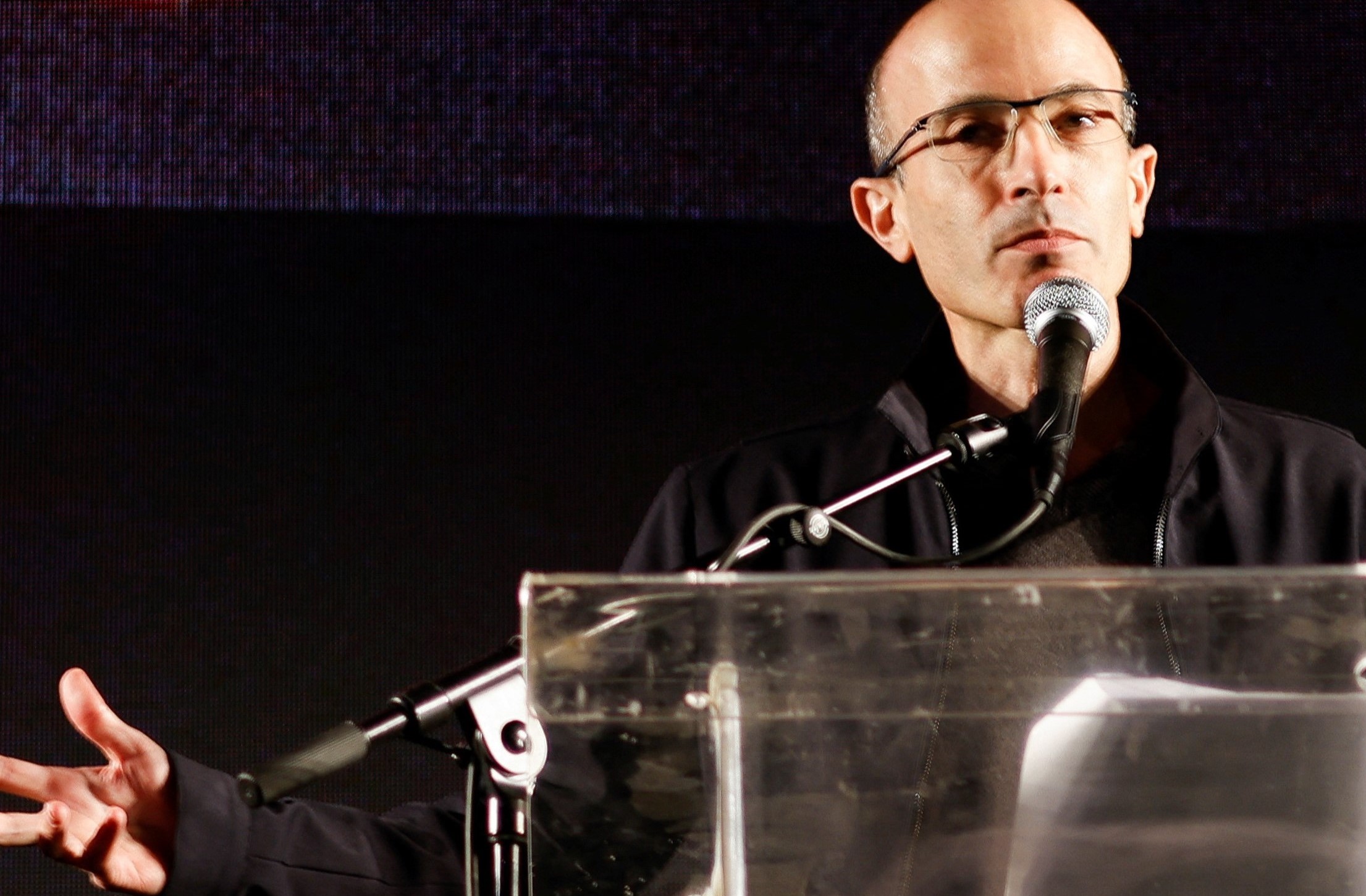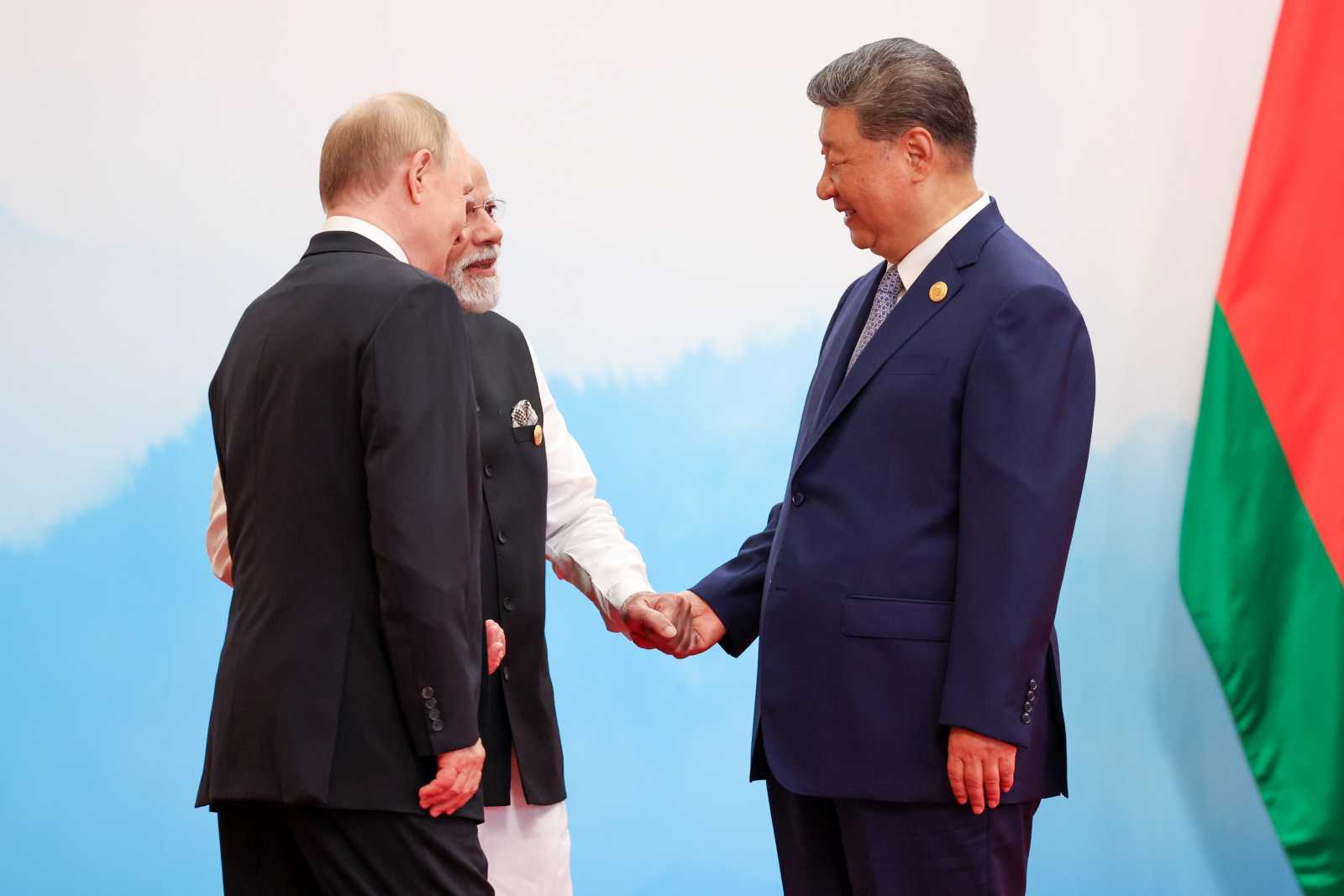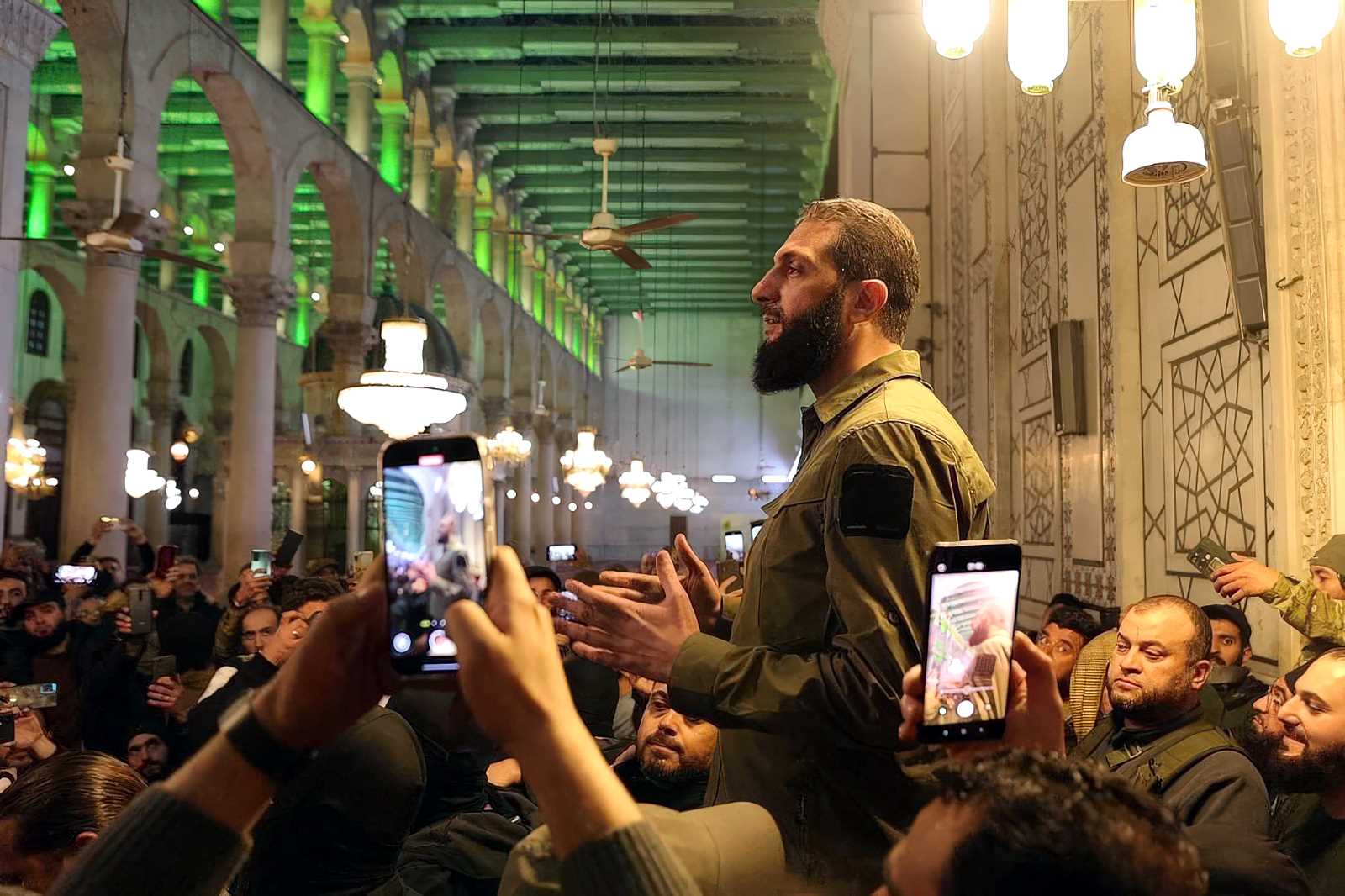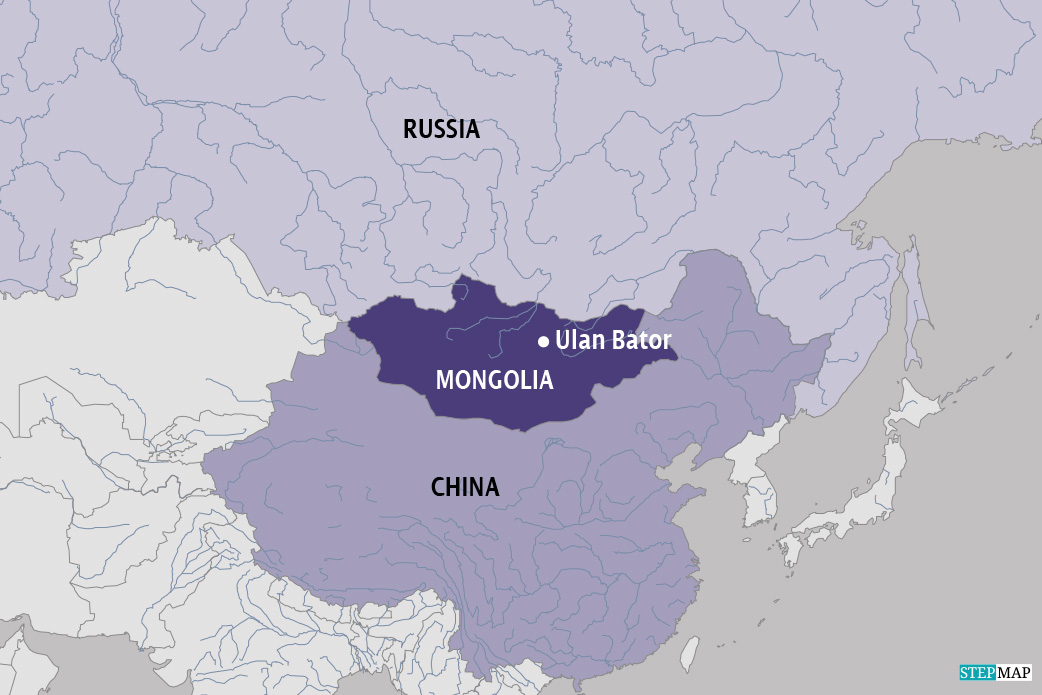Israel/Palestine
Another terrible war
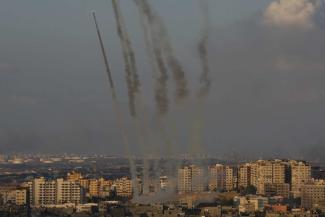
Sober-minded voices acknowledged Israel’s right to self-defence, but called for restraint in military operations. Some Jewish authors accused Prime Minister Benjamin Netanyahu of failure. Western leaders declared unwavering solidarity with the victim of an “unprovoked” attack, but Muslim authors tended to disagree. Some commentators conflated Hamas with “the” Palestinians, neglecting the deep animosity between Hamas and the Palestinian Authority and downplaying that terrorism exacerbates the suffering of the people the Islamist outfit claims to represent. The full truth is that Hamas and Netanyahu absurdly built a hostile alliance, doing whatever they could to prevent the peaceful two-state solution that was agreed in the Oslo peace treaties 30 years ago.
International commentary compiled by D+C/E+Z
Editorial Board, The Hindu, Chennai, 10 October
The attack raises moral and pragmatic questions. Hamas’s indiscriminate violence against Israeli civilians is repugnant and is not going to help the Palestinian cause in any way. On the contrary, it will put more Palestinian lives at risk as Israel, equally disregarding civilian casualties, is pounding the besieged enclave. But at the same time, Palestinian territories, under the yoke of the longest occupation in modern history, have been a fuming volcano. There is no peace process. Israel has continued to build settlements in the West Bank, raising security barriers and checkpoints, limiting Palestinian movements, and never hesitating to use force or collective punishment to keep organised Palestinians under check. This status quo has only turned Palestinians more radical and Hamas even stronger. Israel has now declared war. But past attacks – ground invasions and air strikes – have done little to weaken Hamas. West Asia has also witnessed geopolitical realignments in recent years – from the Israel-Arab reconciliation to the Iran-Saudi détente. But these changes have conveniently sidestepped the occupation of Palestine, West Asia’s original sin, letting the status quo prevail. But the status quo cannot prevail without consequences. If Israel and other regional and international players want lasting peace and stability in the region, their focus must turn to finding a solution to the question of Palestine.
Kenneth Roth, The Guardian, London, 11 October
Hamas’s appalling attack on Israeli civilians has been widely described as the country’s “9/11 moment”. It is an appropriate description of such wanton cruelty. But the analogy carries a cautionary note as well. The US government lost the world’s sympathy, and the moral high ground, when its response to 9/11 degenerated into a highly abusive war in Iraq, systematic torture, and endless detention without trial in Guantánamo. The Israeli government should be careful not to replicate this path to opprobrium. Indeed, such an abusive response may be exactly what Hamas wanted to provoke. (…) It is a basic premise of international humanitarian law that war crimes by one side do not justify war crimes by the other. Of necessity, given the passions, charges and counter-charges of most wars, the duty to comply with the rules designed to spare civilians as much as possible the hazards of war is absolute, not contingent on the behavior of opponents. The Israeli government already seems to be flouting those rules. The declared siege of Gaza, blocking food, water, and electricity, violates the duty to allow humanitarian aid to civilians in need, as the people of Gaza certainly are as they suffer massive Israeli bombardment.
https://www.theguardian.com/commentisfree/2023/oct/11/israel-hamas-attack-gaza-9-11-cautionary-tale
Yuval Noah Harari, Washington Post, 11. October
We grew up with stories about defenseless Jews hiding from the Nazis in cupboards and cellars, with no one coming to help them. The state of Israel was founded to ensure that this would never happen again. So how did it happen? How did the state of Israel go missing in action? On one level, Israelis are paying the price for years of hubris, during which our governments and many ordinary Israelis felt we were so much stronger than the Palestinians, that we could just ignore them. There is much to criticize about the way Israel has abandoned the attempt to make peace with the Palestinians and has held for decades millions of Palestinians under occupation. But this does not justify the atrocities committed by Hamas, which in any case has never countenanced any possibility for a peace treaty with Israel and has done everything in its power to sabotage the Oslo peace process. (…) History isn’t a morality tale. The real explanation for Israel’s dysfunction is populism rather than any alleged immorality. For many years, Israel has been governed by a populist strongman, Benjamin Netanyahu, who is a public-relations genius but an incompetent prime minister. He has repeatedly preferred his personal interests over the national interest and has built his career on dividing the nation against itself. He has appointed people to key positions based on loyalty more than qualifications, took credit for every success while never taking responsibility for failures, and seemed to give little importance to either telling or hearing the truth.
Explainer, Jewish Currents, New York, 10 October
Since Israel’s disengagement from Gaza in 2006, Hamas has operated as the governing authority in Gaza, often facing discontent from Gazans for its authoritarian rule and for failing to ameliorate widespread poverty under Israel’s blockade. Through that time, Hamas has sometimes used rocket fire to exact concessions from Israel relating to the administration of Gaza’s borders, work-permits for Gazan residents, and the adjustment of some terms of the blockade. Israel has frequently reacted to Hamas rocket attacks with bombing campaigns, an approach Israeli strategists have referred to as “mowing the grass.” (…) Despite engaging in repeated skirmishes with Hamas – and often describing Hamas as a violent threat that justifies Israel’s security apparatus and aggressive military responses – Israeli leaders have sometimes argued that it is in Israel’s interest to strategically support Hamas in order to maintain division among Palestinians. In fact, the former New York Times Jerusalem bureau chief David K. Shipler has reported that in the early 1980s Israel offered financial support to the Muslim Brotherhood members who eventually formed Hamas, in the hopes that they would check the power of the PLO, which they viewed as a threat. This dynamic has continued into the present: In March 2019, Netanyahu told a meeting of his Likud party’s Knesset members that “anyone who wants to thwart the establishment of a Palestinian state has to support bolstering Hamas and transferring money to Hamas. This is part of our strategy—to isolate the Palestinians in Gaza from the Palestinians in the West Bank.”
Editorial Board, The Guardian, London, 8 October
Just over a week ago, President Biden’s national security adviser, Jake Sullivan, said: “The Middle East region is quieter today than it has been in two decades.” This weekend’s events have not only proven that judgment spectacularly wrong but have underscored the cost of US disengagement. There is the risk of intensified violence in the West Bank and of a wider conflagration drawing in Hezbollah in Lebanon. On Sunday morning, an Egyptian police officer shot dead two Israeli tourists in Alexandria. Hamas has not only destroyed the path towards the normalisation of relations between Saudi Arabia and Israel. It has also demonstrated, at immense human cost, that deals with Gulf states which sideline Palestinians and their needs are not a solution, and that the status quo before Saturday was neither sustainable nor containable.
Gidi Weitz, Haaretz, Tel Aviv, 9 October
Effectively, Netanyahu’s entire worldview collapsed over the course of a single day. He was convinced that he could make deals with corrupt Arab tyrants while ignoring the cornerstone of the Arab-Jewish conflict, the Palestinians. His life’s work was to turn the ship of state from the course steered by his predecessors, from Yitzhak Rabin to Ehud Olmert, and make the two-state solution impossible. (…) The worst terror attack in Israel’s history also strips Netanyahu of his title as “the terrorism expert”.
Thomas Friedman, New York Times, 10. October
If and when there’s an inquiry into how the Israeli Army could have so missed this Hamas buildup, investigators will discover that the Israeli Army leadership had to spend so much time just keeping its air force pilots and reserve officers from boycotting their service to protest Netanyahu’s judicial coup — not to mention the time, attention and resources they had to devote to preventing extremist settlers and religious zealots from doing crazy things in Jerusalem and the West Bank — that they took their eyes off the ball. America cannot protect Israel in the long run from the very real threats it faces unless Israel has a government that reflects the best, not the worst, of its society, and unless that government is ready to try to forge compromises with the best, not the worst, of Palestinian society.
https://www.nytimes.com/2023/10/10/opinion/israel-hamas-.html
Tasneem Tayeb, Daily Star, Dhaka, 8 October
Hamas has said they have launched the attacks in response to the brutality faced by Palestinians in recent years, and against the desecration of Al-Aqsa Mosque by the Israeli forces and settlers, which has seen a significant increase in recent years. (…) According to the Islamic Waqf Department in Jerusalem, in 2022, Al-Aqsa Mosque endured one of the most violent years in recent history, with the highest number of forced incursions and breaches. More than 48,000 Israeli settlers stormed the mosque compound throughout the year. The attacks continued into 2023, with an UN expert condemning forcible entry into – and attacks on and arrests of innocent Palestinian worshippers inside – the mosque compound, in April 2023, wounding at least 31 Palestinians. In doing so, the Israeli forces violated the Status Quo Agreement of 1967, which allows for a Jordanian-appointed body to manage the Al-Aqsa Mosque site, with Muslims being permitted to pray there. However, since the mosque falls under the illegally-occupied East Jerusalem, over which in a just world Israel should not have sovereignty, Israeli law enforcers control access to the site and allow Israeli visitors as tourists. (…) Violence against the Palestinians by Israel has also increased in recent years, with more than 230 Palestinians killed by Israeli forces and settlers in 2022, including 40 children. At the end of the year, 2022 was termed the deadliest year for the Palestinians since 2005. This year, even before the October 7 attacks, more than 200 Palestinians have been killed by Israelis, including more than 38 children.
Moustafa Bayoumi, The Guardian, London, 11 October
What exactly counts as a provocation? Not, apparently, the large number of settlers, more than 800 by one media account, who stormed al-Aqsa mosque on 5 October. Not the 248 Palestinians killed by Israeli forces or settlers between 1 January and 4 October of this year. Not the denial of Palestinian human rights and national aspirations for decades.One can, in fact must, see such actions as provocations without endorsing further murderous violence against civilians. But if you watched only US news, you would be likely to presume that Palestinians always act while Israel only reacts. You might even think that Palestinians are the ones colonizing the land of Israel, no less. And you probably believe that Israel, which holds ultimate control over the lives of 5 million Palestinians in the West Bank and Gaza and yet denies them the right to vote in Israeli elections, is a democracy. (…) We will certainly hear a great deal in the US about the Israeli Americans killed or abducted by Hamas, as we should, but will those same voices rise to the same volume for Palestinian Americans threatened and killed in Gaza? Did they also demand answers when the Israeli military shot and killed the Palestinian American journalist Shireen Abu Akleh in May 2022?
https://www.theguardian.com/world/2023/oct/11/israel-palestine-war-biden-zelenskiy
Zain ul Abdin Jessar, Dhaka Tribune, 12 October
Are the lives of Israelis more important than those of Palestinians? Why do Israelis expect peace from the oppressed when their defence minister calls Palestinians “human animals”? The shameless hypocrisy of the West, on the other hand, is simply stomach-turning, to say the least. (…) The global institutions, like the United Nations, have a greater responsibility to resolve these conflicts peacefully and effectively. The West needs to shun its biased role in the Middle East and other regions. Instead of declaring the lengthy Israeli occupation of Palestine illegal and stopping atrocities on Palestinians, the West is fully backing the Jewish state militarily. This will lead to further escalation in the region. The only way to come out of the currently raging inferno is to give the two-state solution a chance by restoring the pre-1967 geographical boundaries. Global and regional powers as well as organisations must strive to achieve this goal. Else, there will be more deaths and bloodshed on both sides of the divide.
https://www.dawn.com/news/1780658/attack-by-hamas-is-actually-a-reaction
Edward Luce, Financial Times, London, 11 October
Last weekend’s massacres were designed to provoke retaliatory Israeli atrocities in the Gaza Strip, which would validate Hamas’s Manichean worldview and its claim to be the chief legitimate voice of the Palestinian people. It would further undercut Fatah’s control of the occupied West Bank and fan extremism in Israel. Each of these knock-on effects would harm America’s standing and further undermine Israel’s security. The emotional temptation is to offer Netanyahu’s government unconditional support. It is hard to hear stories of slaughtered infants and not succumb to blind vengefulness. The rational position is to reject the playbook that Hamas wants. (…) Israelis and Palestinians are on the brink of writing an even darker chapter in their history. Biden has the means to hijack that script. It is the most pro-Israeli thing he could do.
https://www.ft.com/content/88f207b5-7870-4936-ab4b-ec9922ad3c9e
Martin Konečný, The Guardian, London, 12 October
On Monday, the EU commissioner Olivér Várhelyi unexpectedly declared – in a social media post – a freeze on EU development assistance to the Palestinians worth €690m. The scale of terror against Israel was “a turning point”, Várhelyi wrote. Providing around €300m annually, the EU is the occupied territories’ largest international source of aid. The Hungarian commissioner’s solo, and seemingly unauthorised, move was later reversed after a backlash from several governments, along with objections from the EU’s chief diplomat, Josep Borrell, and the European Council president Charles Michel. The EU will now review its aid, not formally suspend it. Várhelyi – who was nominated by the Hungarian premier Viktor Orbán, a close ally of Benjamin Netanyahu – is in charge of EU relations with neighbouring countries and rarely misses an opportunity to position himself as Israel’s staunchest ally in Brussels. (…) That suspending aid was even considered, and remains a possibility, is mind-boggling. If the goal is to punish Hamas, stopping European aid makes no sense. The EU and its member states do not fund Hamas. Freezing assistance would instead punish the EU-backed Palestinian Authority (PA), which is Hamas’s chief rival. By further weakening the PA and increasing the prospect of its collapse in the West Bank, suspending the funds would be a gift to Hamas. (…) Reviewing the funding to verify that it does not support Hamas or any violent activity is entirely legitimate. But pre-emptive aid suspensions only validate fake conspiracy narratives about the EU funding terrorists.
https://www.theguardian.com/commentisfree/2023/oct/12/eu-aid-palestinians-hamas-brussels-crisis
This article has been updated on 26 October 2023.

